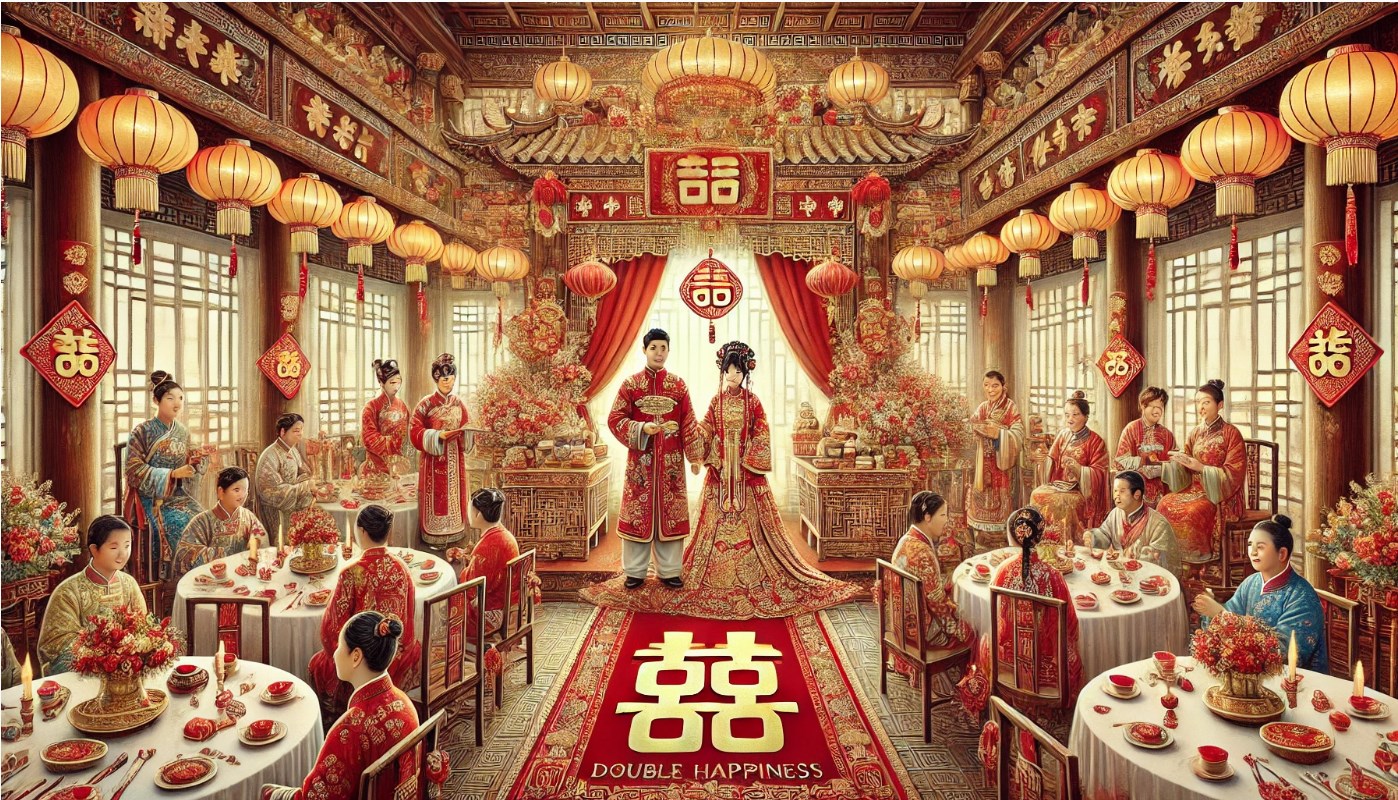Marriage and family traditions in China are deeply rooted in the country’s cultural heritage, shaped by thousands of years of history, philosophy, and social structures. These traditions reflect a harmonious balance between respect for family, adherence to Confucian values, and the evolution of Chinese society through modernization. The concept of marriage in China has traditionally been about the union of families rather than just two individuals, emphasizing family obligations, social expectations, and ancestral respect.
In recent decades, as China has rapidly modernized, marriage and family customs have evolved significantly. However, the core values of family, respect for elders, and filial piety remain deeply ingrained in Chinese culture. The institution of marriage is still highly regarded, and the role of family continues to be central to Chinese life. Understanding marriage and family traditions in China requires not only a look at traditional practices but also an exploration of how contemporary social, political, and economic changes are influencing these long-standing customs.

Historical Context of Marriage in China
Ancient Chinese Marriage Customs
In ancient China, marriage was seen as a social obligation rather than a romantic relationship. The primary purpose of marriage was to ensure the continuation of the family line and the honoring of ancestors. Traditional marriages were often arranged by the parents or elders of the family, and the concept of “love marriages” was a relatively modern development. These unions were more about alliances between families, ensuring political power, economic stability, or social status.
The arrangement of marriages was guided by various rituals and formal processes, including the matchmaking (媒妁之言, méishuò zhī yán), proposal (纳彩, nà cǎi), and betrothal (纳吉, nà jí). The families involved would consult the I Ching or astrology to determine the compatibility of the couple. The process was formalized, and the bride’s family would offer a dowry, which could include valuables, money, or land.
Role of Confucianism in Marriage
Confucianism, which became deeply embedded in Chinese society during the Han Dynasty, reinforced the idea of marriage as a duty rather than a choice. The Confucian ideal placed significant emphasis on filial piety (孝, xiào), where the individual’s primary responsibility was to honor their parents and ancestors. Marriage was considered essential for the continuation of the family lineage and the honoring of ancestors through ritual offerings.
Confucian principles also outlined clear roles for men and women within marriage. Men were generally seen as the head of the household and responsible for providing for the family, while women were expected to manage domestic duties and support their husbands. Women were largely restricted to the domestic sphere, and marriage often determined their status and social role.
Traditional Chinese Wedding Customs
The Marriage Proposal and Betrothal
Traditional Chinese weddings often began with the formal process of matchmaking, where a matchmaker, known as a mei po (媒婆), would mediate between the two families. The matchmaking process often involved the exchange of family background information and the use of a fortune teller or astrologer to check the couple’s compatibility based on their birthdates and zodiac signs. Once a suitable match was found, the marriage proposal (纳聘, nà pìn) would be made, followed by the exchange of betrothal gifts (聘礼, pìn lǐ), which could include items such as tea, cloth, and money.
The betrothal ceremony was a formal step in which the families would officially announce the engagement. During this time, the groom’s family would present the bride’s family with a set of gifts (聘礼), which symbolized their intentions and the bride’s dowry. The gifts were meant to show respect for the bride’s family and reinforce the seriousness of the marriage arrangement.
Pre-Wedding Preparations and Rituals
Before the wedding day, many traditional rituals were conducted, which included the preparation of the wedding attire. Traditionally, brides would wear a red dress (often a qipao or cheongsam), as red symbolizes good fortune and happiness in Chinese culture. The groom typically wore a formal robe with symbols of longevity or wealth, and his attire would often feature a mandarin collar and embroidered designs.
Another important pre-wedding custom was the hair combing ceremony (梳头, shū tóu). The bride and groom would have their hair combed at dawn, symbolizing the start of their new life together. For the bride, the combing was usually performed by a married woman of good fortune, as it was believed that this would bring her happiness and fertility in her marriage.
The Wedding Day
On the day of the wedding, the bride would be escorted to the groom’s home by a procession of friends and family. The groom, who would typically wait for the bride at his home, would go through the traditional door games (接亲, jiē qīn), in which his groomsmen would challenge the groom’s party with physical tests or riddles before they could enter the bride’s home to claim her. These door games were meant to test the groom’s determination and commitment to his bride.
The actual wedding ceremony often included the tea ceremony (敬茶, jìng chá), which held great significance in Chinese weddings. During the tea ceremony, the bride and groom would serve tea to their parents and elderly relatives as a sign of respect and gratitude. The couple’s elders would offer blessings in return, often in the form of red envelopes containing money or gifts. The tea ceremony was seen as an important rite of passage, symbolizing the bride’s integration into the groom’s family and her acknowledgment of the elder generations.
Post-Wedding Customs
After the wedding, the couple would typically celebrate by hosting a banquet (喜宴, xǐ yàn) for friends, family, and acquaintances. The banquet is often lavish, featuring a large variety of food items that symbolize wealth, fertility, and good fortune. Traditional dishes might include fish, dumplings, and sweet rice cakes, all of which carry auspicious meanings related to prosperity and happiness.
In some regions of China, it was customary for the bride to live with her husband’s family for a period of time after the wedding. This practice reinforced the idea of the woman becoming part of the groom’s family and also reinforced her role in supporting her husband’s household.
Family Structure and Values in Traditional China
The Patriarchal Family System
The family structure in traditional Chinese society was patriarchal, with the eldest male in the family holding considerable power and authority. The family unit was often extended, consisting not only of parents and children but also of grandparents, uncles, aunts, and cousins. In this extended family system, the male head of the household (often the grandfather or father) held authority over all family matters, from finances to decisions about marriage and children’s education.
The roles within the family were defined by Confucian principles, which emphasized hierarchy and respect for authority. Men were the primary breadwinners and decision-makers, while women were responsible for domestic duties, child-rearing, and maintaining the family’s social status through respectful behavior.
Filial Piety and Ancestor Worship
Filial piety (孝顺, xiàoshùn), or the respect for one’s parents and elders, was (and continues to be) a cornerstone of Chinese family values. Confucian teachings instructed children to honor their parents and provide for them in their old age. Filial piety extended beyond living parents to deceased ancestors. The belief in ancestor worship is widespread, with families performing regular rituals, such as burning incense and offering food, to honor their ancestors. These rituals were meant to ensure the continued well-being and good fortune of the living family members.
For married couples, the importance of respecting and caring for one’s parents was central to their responsibilities. The relationship between husband and wife was also shaped by Confucian ideals, with the husband expected to provide for the family and the wife to support her husband while managing the household.
The Role of Sons and Daughters
In traditional Chinese society, there was a strong preference for male offspring, who were seen as essential for continuing the family line and maintaining the family’s ancestral rites. Sons were also expected to care for their elderly parents in their old age, while daughters were often married off and became part of their husband’s family.
The value placed on sons led to son preference (重男轻女, zhòng nán qīng nǚ) in many regions, which could sometimes result in imbalanced family structures. Daughters, on the other hand, were expected to be dutiful wives and mothers, with their roles primarily focused on supporting their husband’s family and bearing children.
Changing Family Dynamics in Contemporary China
The Impact of Modernization and Economic Growth
Over the past few decades, China’s rapid economic growth and modernization have brought significant changes to marriage and family life. The traditional family structure has evolved, particularly in urban areas, where families are smaller, and young couples are more likely to live independently after marriage. The influence of Western ideals, globalization, and the one-child policy (which was introduced in the late 1970s and phased out in 2016) has also reshaped Chinese family norms.
The one-child policy, which was in place for nearly four decades, had a profound impact on family structures. It resulted in a sharp decline in birth rates and an aging population, with many families now having only one child. This has put increased pressure on the younger generation to care for their aging parents and led to shifts in the traditional expectations of family roles.
Changing Attitudes Toward Marriage
Modern Chinese society has witnessed a shift in attitudes toward marriage. The rise of individualism, particularly in major cities, has led to an increase in the number of people choosing not to marry or to marry later in life. Many young people now prioritize education, career development, and financial stability before settling down. There has also been an increase in love marriages, where individuals marry for personal choice rather than family or social obligations.
Despite these changes, marriage remains an important cultural institution. In many regions, parents still play a significant role in the selection of marriage partners, often seeking compatibility in terms of background, education, and family status. However, with increasing education and awareness, young Chinese people are more likely to seek out partners based on personal compatibility and emotional connection.
The Role of Women in Marriage and Family
The role of women in marriage and family has also evolved dramatically. As women have gained greater access to education and the workforce, their roles within the family have become more dynamic. In urban areas, many women pursue careers, delay marriage, and are more likely to engage in decision-making within the family. This has led to a more egalitarian approach to marriage, where responsibilities are shared between partners.
However, despite these advancements, traditional expectations still linger in many parts of China, particularly in rural areas, where women are still expected to fulfill traditional roles in child-rearing and household management. The intersection of traditional values and modern societal shifts continues to shape the evolving nature of marriage and family life in China.
Regional Variations and Diverse Practices
Marriage Traditions in Rural vs. Urban Areas
In rural areas, traditional customs remain more intact, and the importance of family lineage and ancestral worship still plays a significant role in marital decisions. Parents often play a central role in choosing a suitable partner for their children, and large, extended families are common. In these regions, marriage customs are often more elaborate, with formal ceremonies and rituals that have been passed down for generations.
In contrast, urban centers like Beijing, Shanghai, and Guangzhou have seen more modern and individualized approaches to marriage. People in cities tend to marry later, with more focus on personal preference, career development, and education. The influence of global culture, social media, and changing economic conditions has led to a shift in marriage practices, with an increase in young people seeking self-expression and independence.
Regional Wedding Customs
Regional variations in wedding customs can also be observed across China. For example, in the southern regions, particularly in Guangdong, it is common to hold a wedding banquet featuring Cantonese cuisine, while in the north, particularly in Beijing, noodles are a common symbol of long life. Different dialects, clothing, and specific rituals reflect the diverse cultural heritage of China’s many regions.
Marriage customs in minority ethnic groups also differ from those in Han Chinese communities. In areas with large populations of Tibetans, Uighurs, or Mongols, wedding ceremonies and traditions often incorporate unique elements, such as horseback weddings in Mongolian culture or hand-tying ceremonies in Tibetan culture. These regional and ethnic variations add layers of richness to China’s diverse marital traditions.






